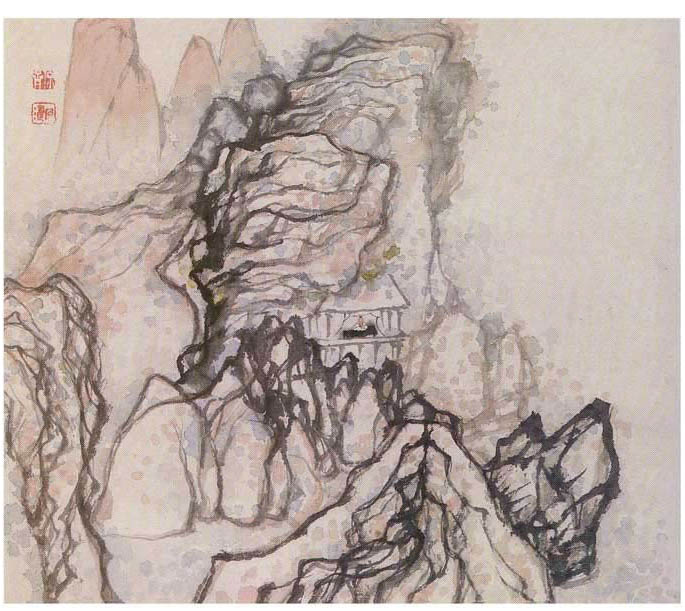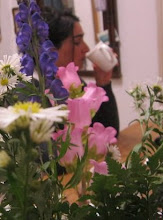Tao-chi's { also known as Daoji, Shih-tao, Shih-T'ao, Shitao, and Yuan Ji}. this landscap is one of twelve small paintings he made in the late 17th century and collected in an album called An Album for Taoist Yü.

Leaf from an Album for Taoist Yü, Ink and colors on paper, 23.75 x 27.5.
A descendant of the imperial Ming family, Tao-chi escaped persecution from the invading Manchus by becoming a Buddhist monk with the name Tao-chi. Tao-chi wrote a treatise on painting, the Hua Yu Lu; he emphasized the concept of "i hua," or one line, which is translatable as line, unity, or a sense of oneness with nature. In one oft-quoted statement, Tao-chi said:
'I am myself because my Self naturally exists. The whiskers and eyebrows of the
Ancients cannot grow on my face, nor can their entrails exist in my stomach. I
have my own entrails, and my own whiskers and eyebrows. Even when there may be some point of contact with another master, it is he who approaches me, and not I who seek to become like him. I have been taught directly by Heaven, how could I learn from antiquity without transforming it?'





1 comment:
I can resonate with this. How do we ask heaven to teach us though? Where are the ears that belong to paradise, that can her our request?
Post a Comment